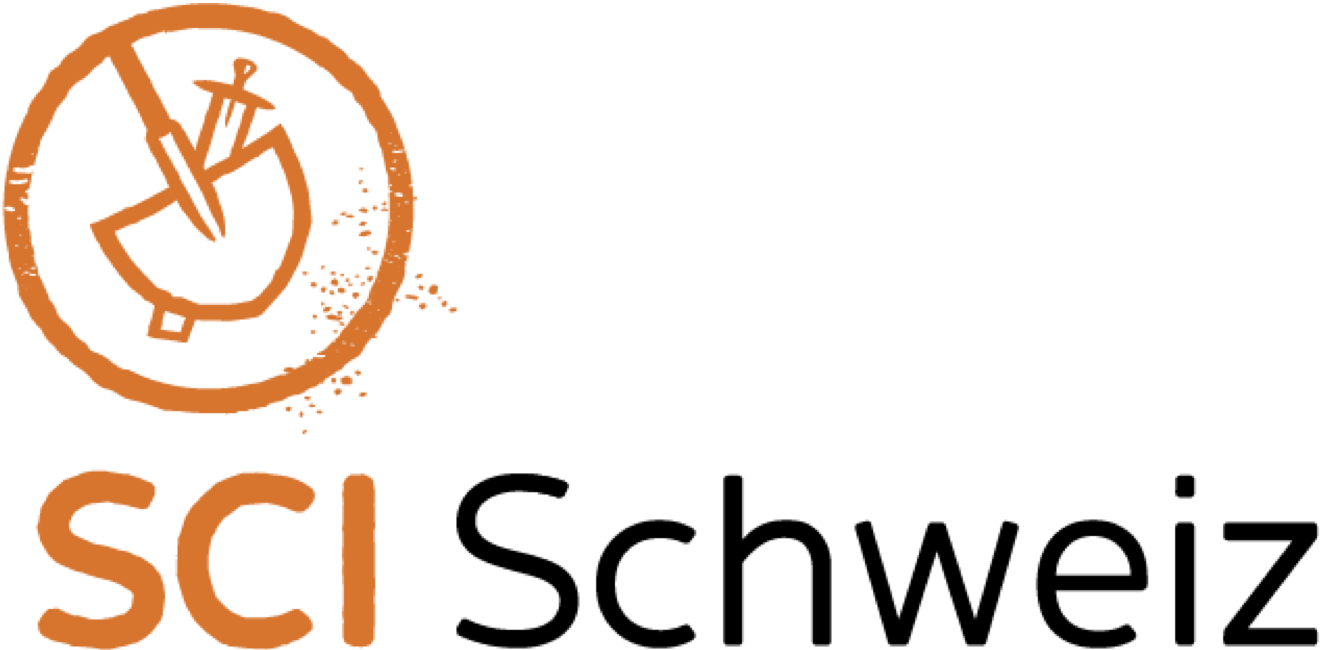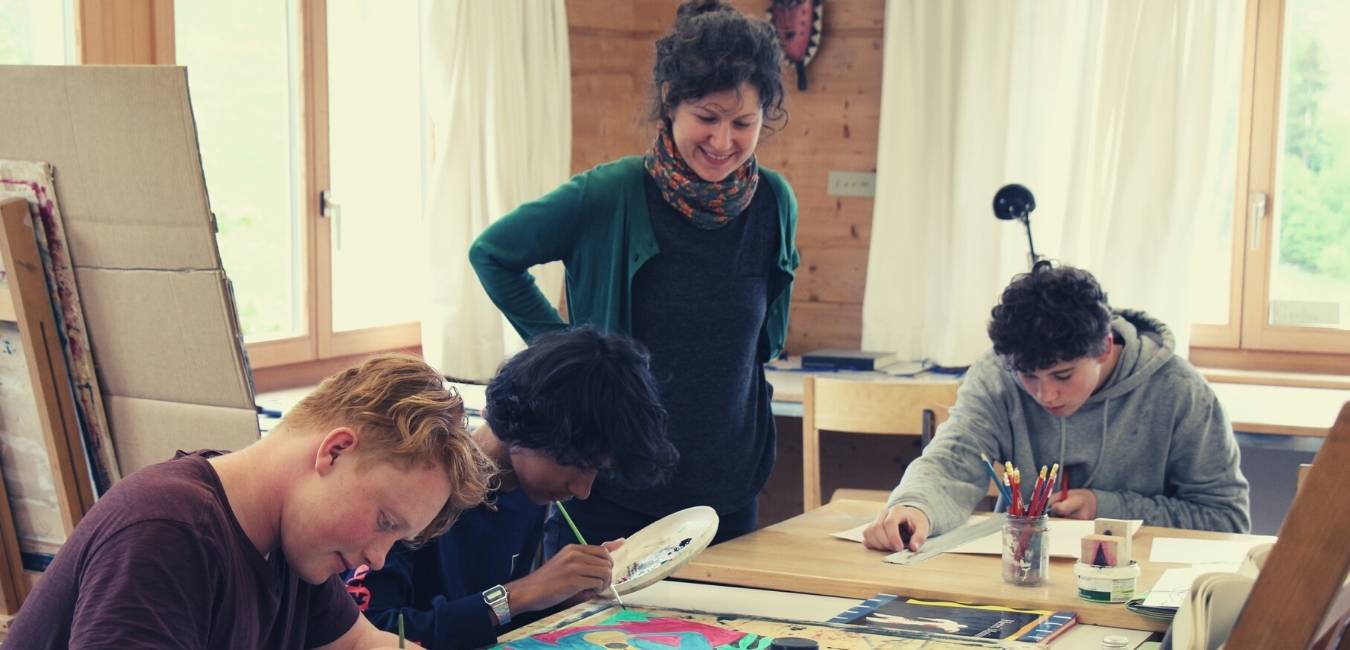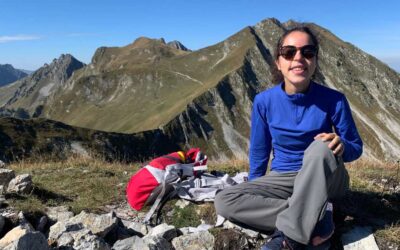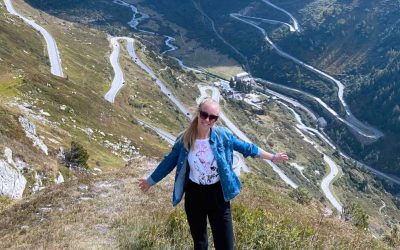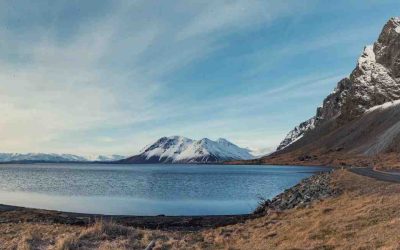by Milica Dukić
After finishing my studies, I realized the plan that existed even before them – taking a role in long-term volunteering abroad – a unique opportunity to discover another country through chosen engagement. The Volunteer Center of Vojvodina (VCV), which was introduced to my search, recommended that I consider a call from an international Swiss school which was looking for an artist-in-residence. It was an ideal option for me, as I had previously defended my master’s degree at the Academy of Arts in Novi Sad. I went through a short circle, followed by interviews through which they wanted to make sure that I could imagine myself in completely new and special conditions. The next step was packing my suitcase and making the best decision of my life.
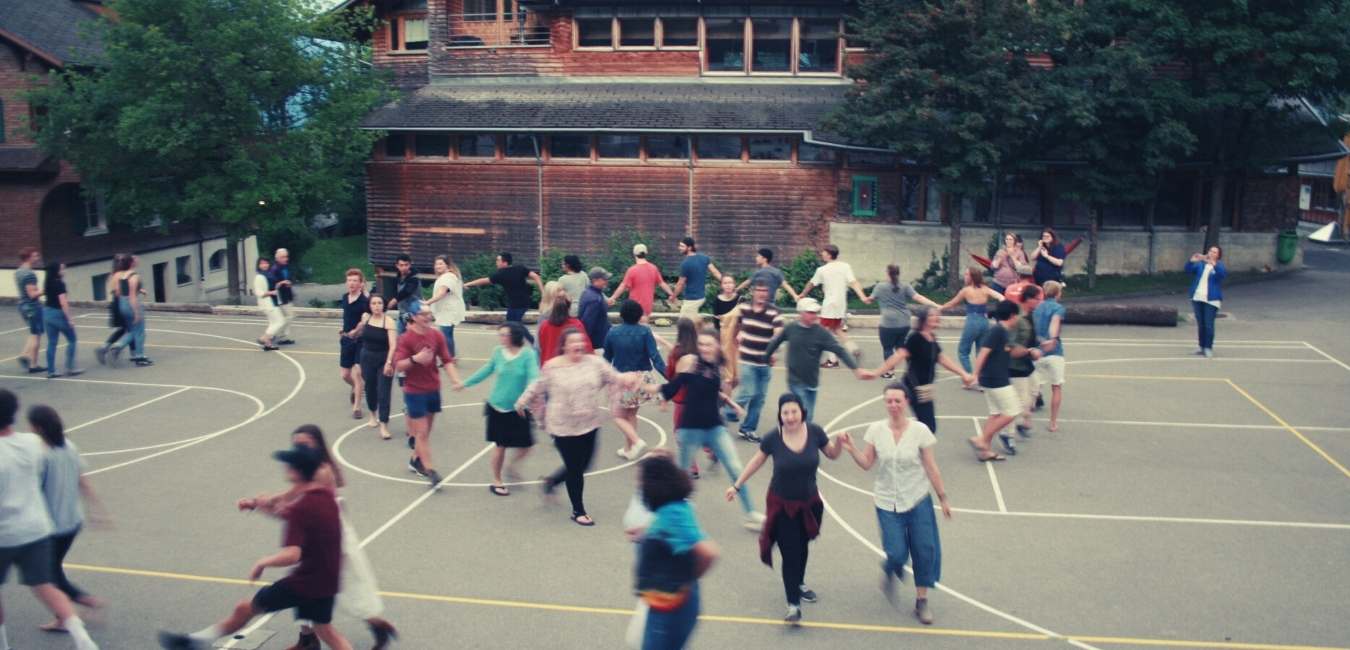
I will try to briefly describe the 2017/18 school year. Viewed from the perspective of time now passed, the reward for the courage of going into the unknown was followed immediately upon arrival, as I felt welcomed by more than 100 new faces. It all started with a fantastic landscape, a beautiful reception, and music that didn’t seem to stop for those 11 months – as it was repeated every Saturday in the form of a choir in which everyone participated, or as part of music and dance classes, while the seasons were changing. Ecole d’humanité is a special universe tucked away in the Alps at 1080 m high. The school campus is located in the village of Hasliberg Goldern, in the central part of the country. Going to the store involves some 40 minutes of walking through the woods overlooking a couple of waterfalls. Children from all over the world come here to be educated according to the principles of free schooling, and some of the characteristics are: they have no grades, choosing subjects by themselves, working in small groups and in mixed ages. What makes this school special is its focus on nature. Classes are often held outside, and sometimes instead of offices, professors go into the woods to write a report. The school organizes hikes in durations of several days. In winter, on Wednesdays, there are no classes, but everyone go skiing collectively.

You can read more about the interesting history of the school on Wikipedia, or on their website ecole.ch, and I also recommend an article from a friend who had the opportunity to visit me: Meet the Ecole d’Humanité (in Serbian).
I will add that instead of the school bell, they use gongs. Also they do not have cleaning staff, so that the students, together with the professors, maintain order. In the morning they listen to three main subjects which they study per semester, and in the afternoon they have activities such as sports (including freeclimbing, skateboarding…), theater, dance, meditation, cooking, goat cheese making, music, art (I had the opportunity to lead a couple of subjects such as drawing, embroidery and textile art…). My main task was to do my artwork, to actively use the studio with a view of the glaciers. Thus, through my presence and the development of my work, the students gained insight into what the profession of an artist looks like. Previously, while studying, I did several jobs parallel to one another. The cross-section I made with my arrival has enabled me to successfully “restart”, and complete dedication to art has resulted with new steps in the work which was presented at the exhibition titled Head or Tail / Kopf oder Zahl. In communication with a group of students who gathered around the topic of empowering vulnerable groups of people, we noticed that two of my artworks have presented Roma figures. We came up with the idea to promote the exhibition as a fundraiser, also exhibiting some works outside of that series. We managed to raise money that was redirected to organizations in Serbia that deal with the endangered, with an emphasis on Roma people. I am extremely glad that we took part this way in strengthening one VCV‘s project.
Today, I feel stronger when I think about this experience. Probably, and above of all, because of the large number of good people I met, concentrated in one place. Quite often, I see the characters of some ‘ecolianer’ in passers-by, and that always makes me happy, with a dose of comfortable nostalgia.
The European Voluntary Service (EVS) programme was created in order to promote solidarity and a sense of community among younger people within Europe (and other partner Countries). With this project, participants get to volunteer for many different organisations with various cultural and social aims. This is a great opportunity to learn new skills and develop their competences, it is not merely an internship experience, as it allows space for self-discovery and the development of personal projects.
EVS is financed by Movetia, the Swiss national Agency and therefore completely free for all participants. It includes travel expenses, food and accomodation, a language course and pocket money.

